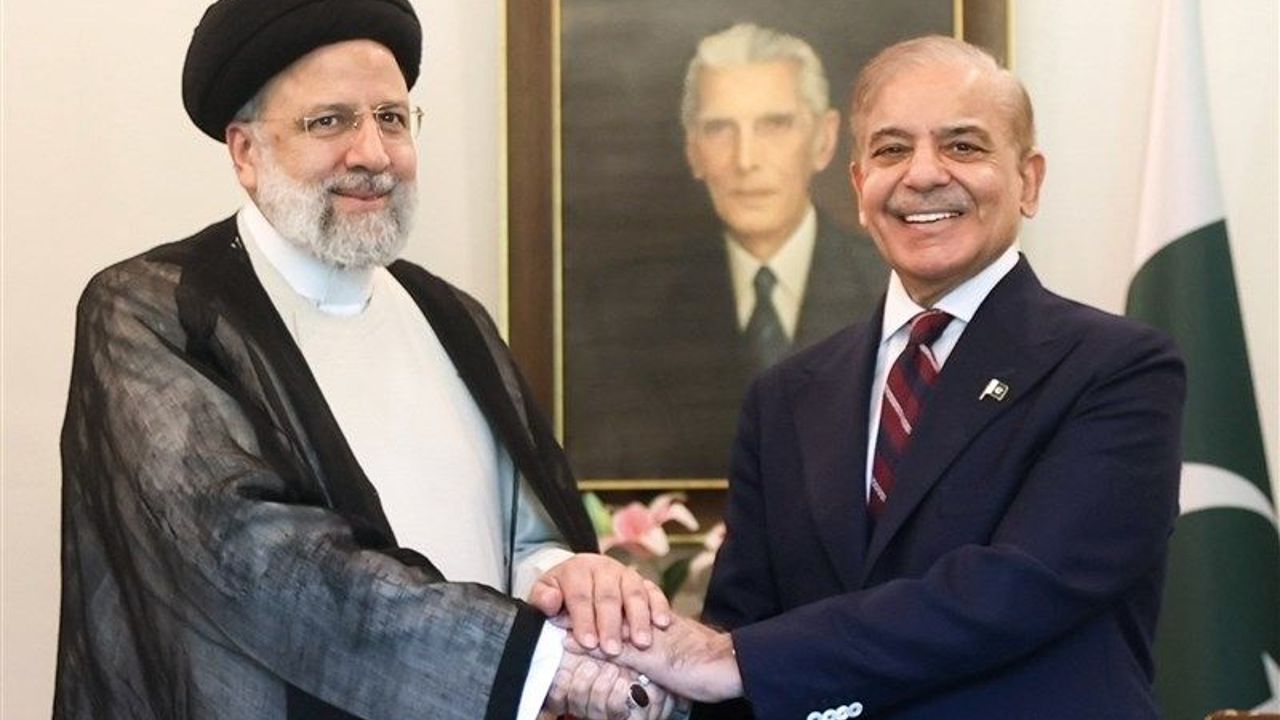Iranian President Raisi strengthens ties with Pakistan during his official visit
Iran's President Raisi emphasizes solidarity with Palestine and joint border security efforts during his visit to Pakistan

Iranian President Sayyed Ebrahim Raisi, on an official visit to Pakistan, held a series of high-level talks to strengthen bilateral relations with Pakistani Prime Minister Shehbaz Sharif.
President Raisi met with the Pakistani premier during his visit to Islamabad, focusing on critical areas of mutual interest – including economic cooperation and regional stability.
Following the meeting, at a joint press conference, President Raisi underlined the importance of using Iran and Pakistan's common religious, cultural and civilizational similarities to strengthen relations.
He highlighted the determination of both countries to develop economic ties and promote sustainable stability in the region.
Expressing his pleasure to be in the capital of Pakistan, Raisi said: "On behalf of the Supreme Leader of the Islamic Revolution and the great Iranian nation, I extend my greetings to the people of Pakistan who have always defended Islam, Islamic values, the oppressed people of Palestine, rights and justice."
'Fed up with Zionist regime'
President Raisi also noted that the people of Pakistan, along with other Muslim nations and free societies around the world, are fed up with the oppression of the Zionist regime, describing it as a "child killer."
He criticized the passivity of the international community, from the United Nations and the Security Council to human rights organizations, in the face of the oppression of the people of Gaza by the Zionist regime supported by the United States and Western countries.
Raisi expressed his belief that the rights of Iran and Pakistan, the Islamic Ummah, and all nations that stand for freedom coincide with the Palestinian quest for justice and rights.
He asserted that this solidarity would reshape the foundations of the global order.
President Raisi also met with Pakistan President Asif Ali Zardari and discussed pressing issues such as regional peace and border security.
Both leaders renewed their commitment to strengthen bilateral cooperation and underlined the need for joint efforts to promote regional stability and economic prosperity.
Highlighting the importance of the Palestinian cause, which is the most critical issue in the Islamic world, President Raisi said: "The desire for the liberation of Jerusalem, envisioned by Imam Khomeini, has today become the common demand of all Muslim and free nations."
The Iranian president also held talks with Pakistan's Chief of General Staff, Syed Asim Munir, focusing on enhancing military cooperation between the two countries.
The two shared the importance of coordinated efforts along the common borders to prevent threats to Iran and Pakistan's long-standing friendship and brotherly relations.
On the other hand, Pakistan Army Chief Syed Asim Munir described the borders shared by Iran and Pakistan as the borders of "Peace and Friendship."
He underlined the importance of enhancing coordination along these shared borders to prevent terrorist activities and thus preserve the lasting bonds of brotherhood between the neighboring countries.
On his visit, President Raisi emphasized Iran's support for Pakistan's security and expressed solidarity with the Palestinian cause. He also emphasized the need for joint action among the Islamic countries to address the challenges facing the Islamic world, particularly the ongoing persecution of the Palestinian people by the Zionist regime.
President Raisi's visit to Pakistan is essential to strengthening bilateral relations and promoting cooperation between neighboring countries.
Source: Newsroom







